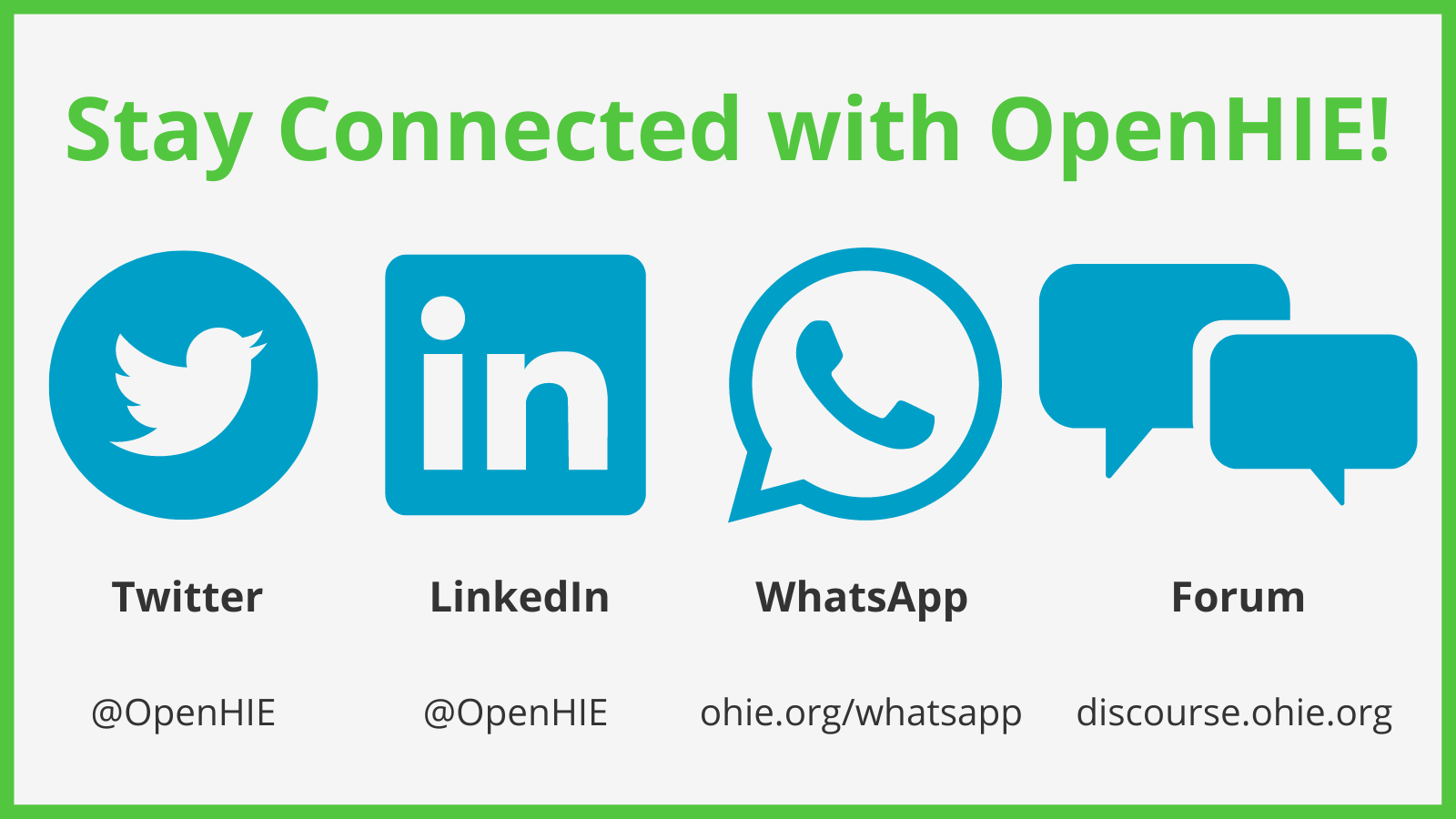Quick Summary: This page outlines what OpenHIE is and how you can get involved. There are links to several resources to connect to community members and to learn more.
I’ve been working in HIE. How do I share my experience and best practices with the community?
Welcome to OpenHIE and we encourage you to start sharing!
There are many activities that you can share your experience through:
- Create an Academy course
- Share use cases for the Architecture Specification
- Share what you’ve been working on for an Impact Story
- Help translate our documentation so we can reach more of the global community!
Stay Up-to-Date with the Community!
Want to keep OpenHIE’s events and activities on your radar? Participate in one or more of our platforms to connect with others and learn about upcoming activities.
We're so glad you're interested in learning more about the OpenHIE approach and community. If you have any questions for getting involved, email the secretariat at support@ohie.org.
For more information about the community, check out the OpenHIE Guiding Principles, Mission + Vision, and Policies.


